
I’ve helped organise the Deliver Sessions meetup for the last few years, after the founders (Matt Thornhill and Shahina Patel) handed over to a new team of me, Chris Burns and Zoe Rigley. The meetup went “remote and occasional” for the last few years, which was still fun – but I’m really pleased it’s now back to in-real-life events around Manchester.
In November 2022 we were at the BBC’s offices, for an evening of lightning talks based around the theme of “working together”. Speakers were asked to present short talks on this theme: what stories could they share about helping teams and others work together more effectively?
I loved how the 8 talks all covered very different topics, but tied together into the overall theme. Here’s a few ideas from each.
Craig A. Taylor: Making remote working work better
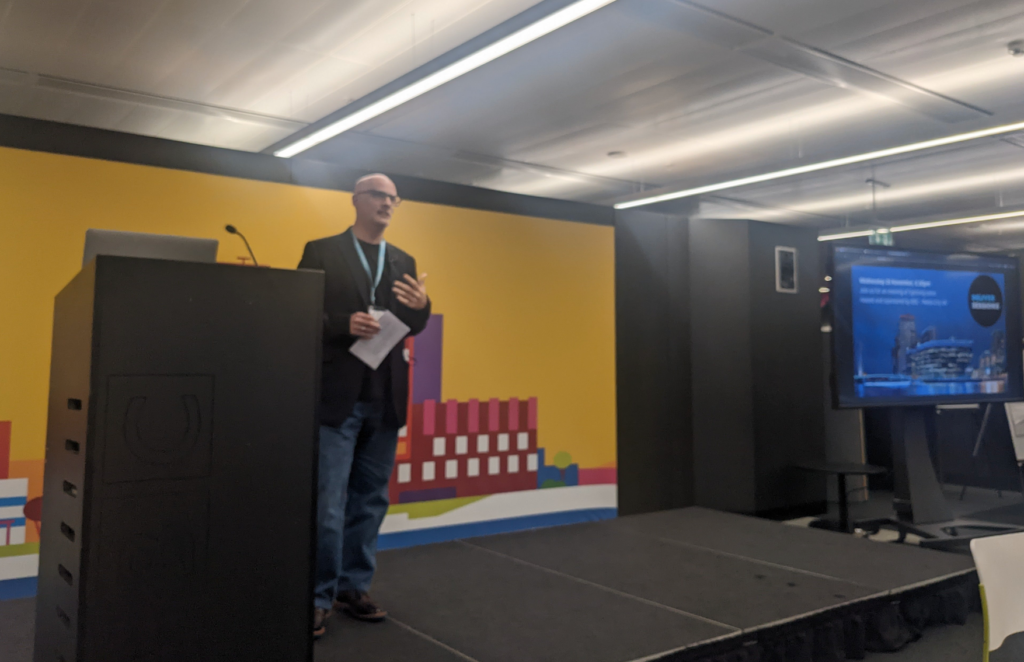
Lots of us got thrown into remote working when covid hit, and lots of companies haven’t had a moment to think thoroughly about how to make this effective. Craig talked through a range of advice, like ideas for simplifying online presentations:
- Slides don’t get much space on video calling screens, so make text and images large and simple
- Focus can flag early, get your important points made at the start
- If at all possible, keep presentations to a minimum and use interactive sessions instead.
Craig helpfully shared all his main points in an article after the event.
Marianne Knowles: Short storytelling sessions for working together
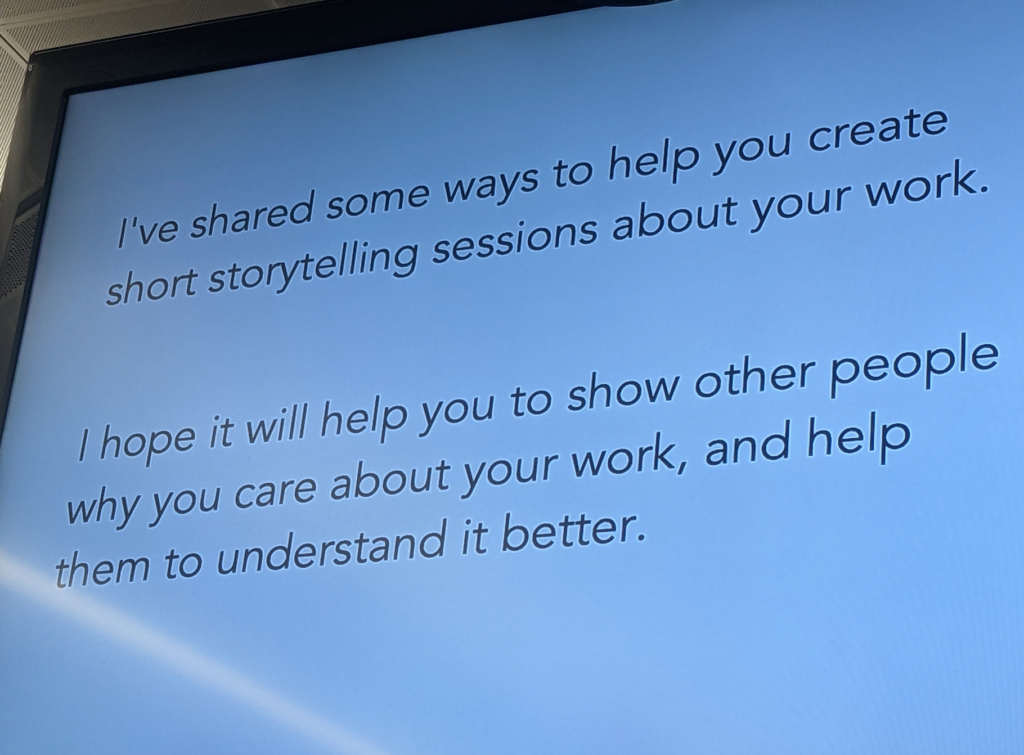
Marianne’s talk was an idea-packed guide to helping people understand what you’re working on and why it matters. She used techniques she learned from studying the Three Minute Thesis competition, and Patrick Winston’s How to Speak course, to show how to structure your points and have the best chance of being heard.
Marianne’s helped get lots more advice together in some guides on the Co-op Experience Library:
Jaimella Espley, Tale of the tumbeweed
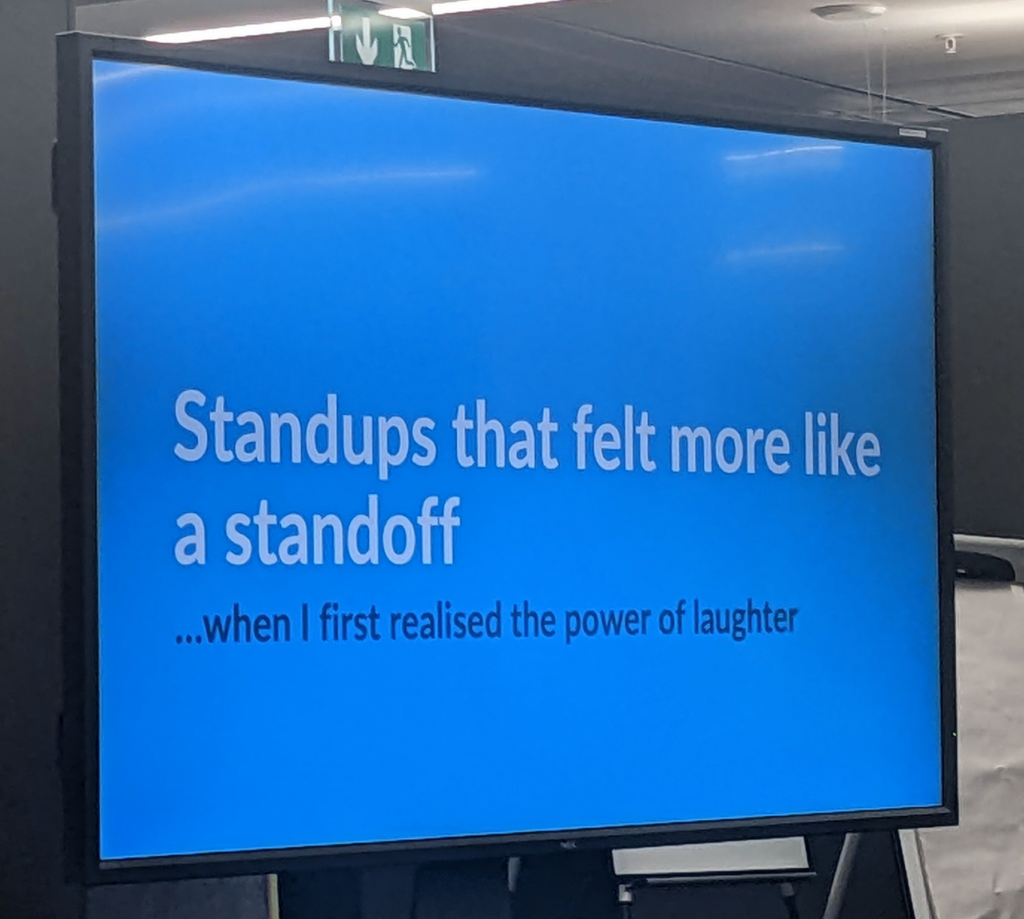
Jaimella shared lots of examples and theory on how to use humour to help teams bond and work better together. She assured us that you don’t have to be funny yourself for this to work – look for the laughter, help give it space and call back to it. And she brought her own home-made tumbleweed, for use in those awkward silent moments.
2 book recommendations look really interesting:
Rebecca Guest: Expanding to bring back
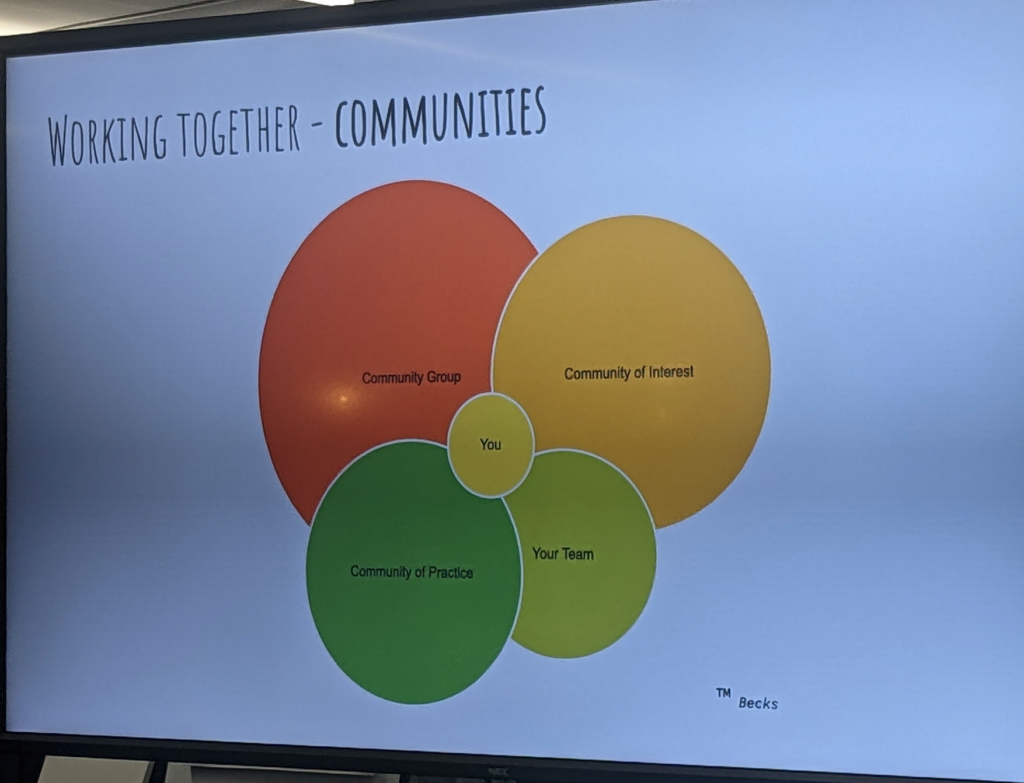
A reflective talk on how you can gather ideas and put them into practice to help your team and yourself. Going out exploring – in communities of practice, meetups like this one, elsewhere – gives you so many new ideas and perspectives.
“I’ve been thinking a lot more about ‘we’ rather than ‘me’ this year”
Charles Howell-Morley, Understanding ownership
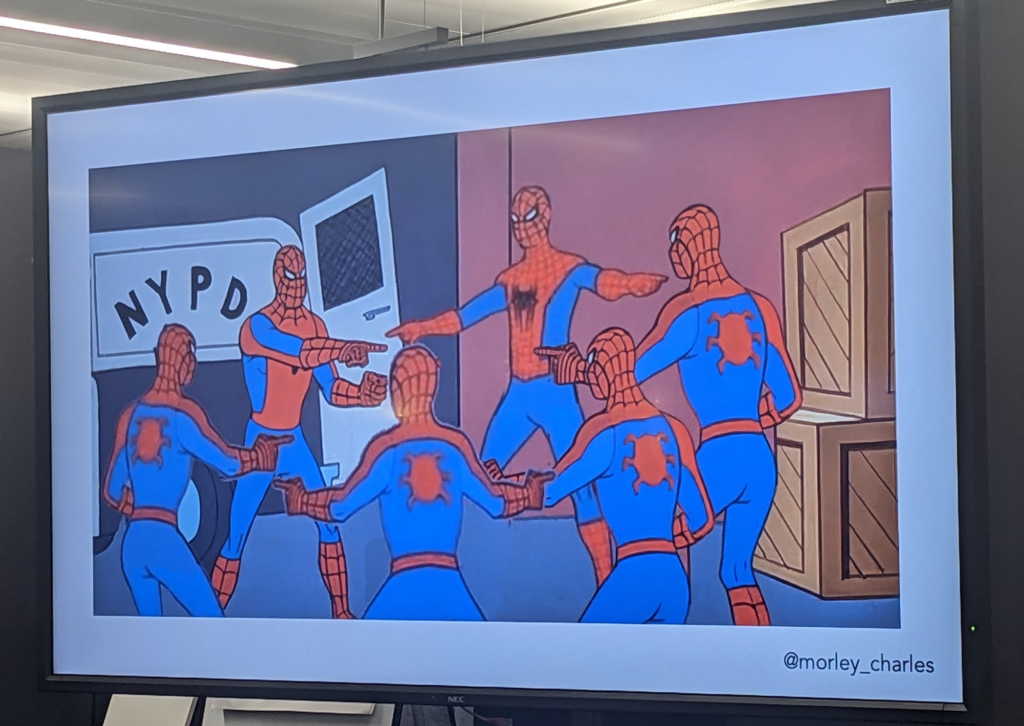
Funding new initiatives, the true cost of running things, and who “owns” different systems have all been fiendishly difficult for Charles to unpick over the last year. Conversations about cost and value sometimes feel like a circle of people all pointing to each other. But he’s getting there!
“We’ve helped teams and stakeholders understand each others choices and motivations more … it’s not a data issue, it’s a cultural change”
Lydia Hawthorn, Common bottlenecks and how to address them
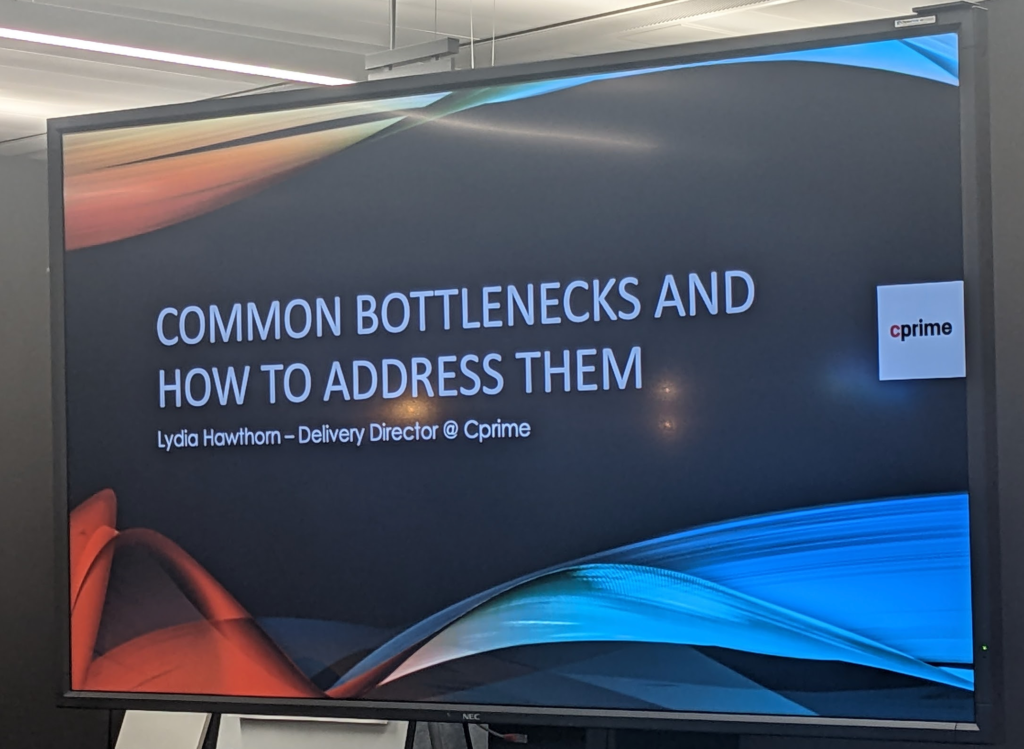
A range of ideas where you can move and change bottlenecks without technical changes – introducing characters like “The release police” and “Dr. Agile” to look at the data, skills, and areas of focus that make a difference.
Lydia ended with a plea to start any initiative by agreeing a “health check” to measure what’s important: “Without a health check, you’ve robbed yourself of a chance to measure success”
Emma Ainsworth, Wardley mapping: Building understanding and collaboration by stealth
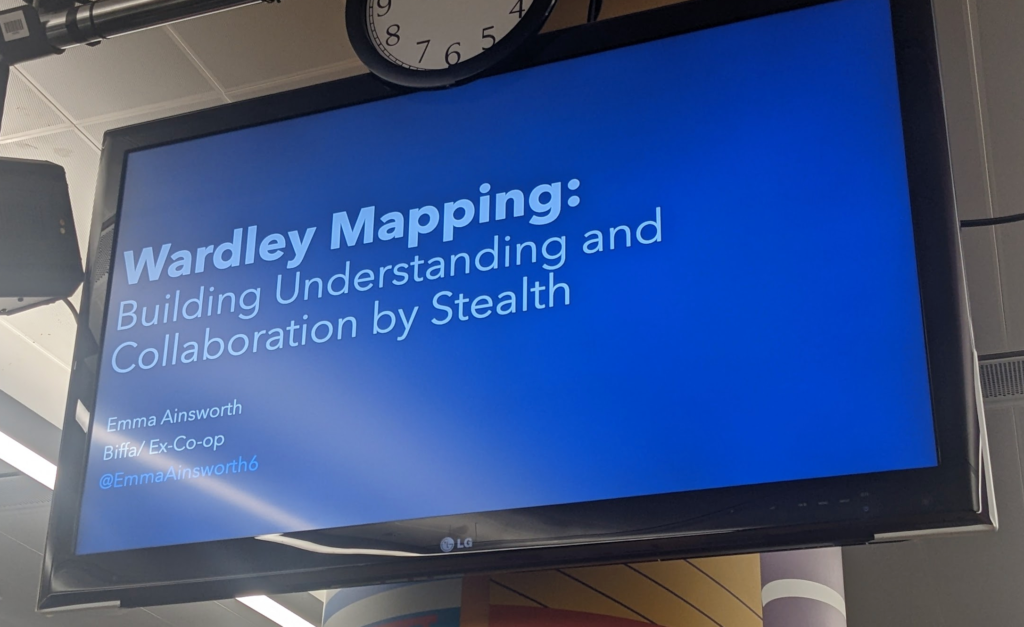
Emma’s worked in a lot of scenarios where people were struggling to talk to each other – confusion and conflict reigned. Wardley mapping workshops have really helped her get people talking, focusing on shared understanding rather than areas of disagreement, and moving forward to practically get stuff done.
She very much recommends taking a look at this technique!
- Simon Wardley’s written a “book” about it on Medium
- But a great place to get started is the simple intros in Learn Wardley Mapping
- That site’s run by Ben Mosior (@HiredThought), who’s got lots of articles and training.
Matt Turner: If you are practising agile, you are full of BS
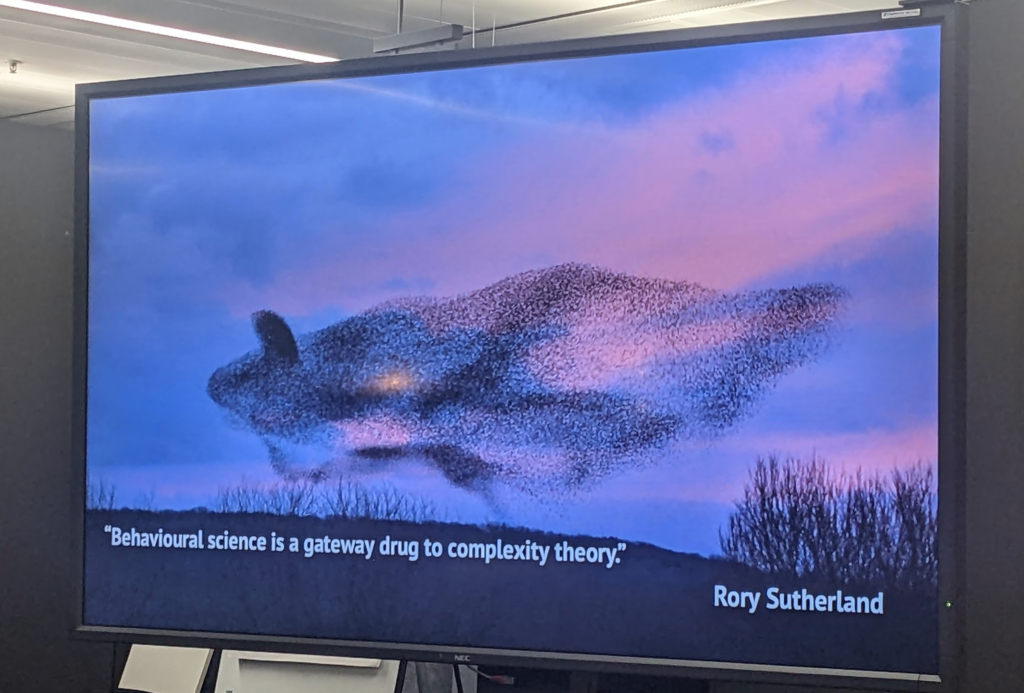
Where “BS” stands for “Behavioural Science”. Matt decided to set himself a challenge by doing his talk PechaKucha style, desperately trying to keep up as the slides auto-advanced every 20 seconds. This was entertaining, and a great way to tour at speed through all kinds of interesting ideas I’m going to look more into later.
- Car manufacturing may have been an unhelpful analogy for software product development (from Lean): it suggests cause and effect are much more knowable than experience tends to show.
- Lots of fields have “physics envy”, trying to make things scientific when they’re not: we wish everything could be reduced to equations that are easier to work with than messy human emotions and biases.
- Social interactions are key: how do we learn about ideas, share and build on them? Visualisation and transparency in lean agile practices helps make this possible.
Next steps
I’m a huge fan of lightning talks: hearing this selection has given me lots to think about over the next few weeks. This blog post’s mostly my attempt to capture the notes and links I want to look into more and see what I can put into practice.
If you’re interested in attending (or talking at) Deliver Sessions in Manchester, follow the meetup at deliver-sessions.eventbrite.com.